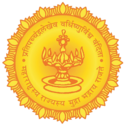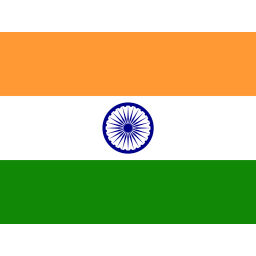Address by Governor at the Tea Session and Interaction with writers and publishers on the occasion of Marathi Bhasha Gaurav Din
Address by Shri CH. Vidyasagar Rao, Hon’ble Governor of Maharashtra at the Tea Session and Interaction with writers and publishers on the occasion of Marathi Bhasha Gaurav Din at Raj Bhavan, Mumbai at 1600 hrs on Wednesday, February 27, 2019
Shri Vinod Tawde, Hon’ble Minister for Marathi Bhasha, Culture, Higher & Technical Education and other departments, Dr Jayant Naralikar, eminent scientist and writer, Shri Bhushan Gagrani, Principal Secretary, Department of Marathi Language, all distinguished writers, publishers and recipients of various awards, officials,
बंधुंनो आणि भगिनीनो,
नमस्कार… आज राज भवन येथे आपणा सर्वांचे स्वागत करताना मला अतिशय आनंद होत आहे.
सर्वप्रथम मी आदरणीय कुसुमाग्रज यांच्या जयंतीनिमित्त त्यांच्या स्मृतीला विनम्र अभिवादन करतो.
आज आपण साजरा करीत असलेल्या मराठी भाषा गौरव दिनानिमित्त आपणा सर्वांना शुभेच्छा देतो आणि आपले अभिनंदन करतो.
There are many eminent writers in this Hall and I feel honoured by their gracious presence. I congratulate the recipient of the Vinda Karandikar Jeevan Gaurav Puraskar to Shri Mahesh Elkunchwar. I also congratulate Dr Kalyan Kale, Dr Harishchandra Borkar, the Sahitya Prasar Kendra and the recipients of Yashwantrao Chavan State Literature Awards for 2017 who are going to be honoured later during the day.
It was nice interacting with you, and I wished the interaction continued for more time.
Ladies and gentlemen,
Our language is like a river. The language is much more than a means of communication or expression.
Language connects, language unifies. Language can also divide nations, as we have seen in the case of Bangladesh.
Our values, our ideals and our identity are embedded within it. It is through our language that we share our experiences, pass on the knowledge of our traditions and cultures. It has been observed that “a lost language is a lost culture, a lost culture is invaluable knowledge lost.”
The only way for a language to survive and thrive is for it to grow and be loved. The moment a language stops growing; its decline starts.
Speaking of our own State Language, Marathi is one of the richest languages in the country. The language has evolved and enriched over thousands of years.
The language has been enriched by saint-poets and social reformers like Sant Dnyaneshwar, Sant Namdeo, Chakradhar Swami, Sant Eknath, Sant Tukaram and many others.
Maharashtra has a population which is equal to the population of Germany, Australia and New Zealand put together. Alongwith Bengali, Telugu, Tamil and Hindi, Marathi is a global language, ranking among the top 20 languages in the world.
While this is certainly a matter of great joy and satisfaction for each one of us, all our languages are facing challenges because of the growing influence of the English language.
According to a report published in an international magazine some time back, of the estimated 7,000 languages spoken in the world, nearly half are in danger of extinction and are likely to disappear in this century.
Some endangered languages are going to vanish at the death of the sole surviving speaker. Languages especially spoken by tribes are more at threat.
Marathi is a popular language with large number of speakers, but, languages spoken by small groups of people and especially dialects are under threat.
We in Maharashtra must launch a scheme for protection, preservation and documentation of all mother tongues, dialects and languages of the State.
Like the Marathi Sahitya Sammelan, we can as well have an Annual Sammelan of all spoken languages of Maharashtra.
A beginning can be made by newspapers, newsgroups and web-based groups, by keeping space for all sister languages and dialects in the daily and weekly newspapers.
Readers should be engaged and encouraged to write about the dialects, their unique idioms and phrases and special words in those languages and dialects.
Ladies and gentlemen,
It also concerns me that schools offering education in regional languages are closing down in favour of English medium schools. In Maharashtra, Marathi medium schools are closing. Likewise, Tamil Schools are closing in Tamil Nadu, and in Telangana and Andhra Pradesh, Telugu medium schools are making way for English medium schools.
While we have to welcome English as a world language, we must be worried that the young generation is not reading and in some cases, conversing in their mother tongues.
Many schools are insisting on children and their parents conversing in English even at home.
I am afraid, after may be 20 years, not many children will be able to read or write in their mother tongues.
The challenge is to encourage young children and youth to express in their mother tongue and to write in the mother tongue.
Thankfully, the young generation is reading. From books, they have switched on to e-books. We must therefore digitalize our books and make them accessible to all. The State Government must take up the digitization of all state libraries and set-up a common digital e-library. The Marathi digital library will help the entire Marathi diaspora from across the world to stay connected to the language and literature. We must involve the Marathi-speaking diaspora from across the world in preserving our State language.
Today I see a growing trend among youths to learn foreign languages such as French, German, Spanish and others. This is certainly a welcome trend. But I do feel that students should also be encouraged to learn the Sanskrit and other Indian languages.
You will be surprised to know that there is greater interest about Sanskrit and Indian languages in other countries. In Germany alone, 14 of the top universities teach Sanskrit, classical and modern Indology.
Apart from Germany, students from the US, Italy, the UK and the rest of Europe also go to Germany for learning Sanskrit !! Four Universities in UK also offer similar programmes in Sanskrit. Likewise, Universities in Poland, Czech republic, Austria and Australia also offer programmes in Sanskrit.
Like Yoga and Ayurveda, there is growing interest in the world about Sanskrit. I do feel that India must take advantage of this growing upsurge of interest about Sanskrit. Like Germany’s Max Mueller Bhavans, we must create a network of Sanskrit and Marathi learning institutes to offer short term programmes in written and spoken Sanskrit.
The responsibility of bringing glory or Gaurav to our own Mother tongue lies in our own hands. Unless we love our own language, we cannot expect others to learn our language.
सर्व पुरस्कार प्राप्त लेखकांचे व मराठी भाषा प्रेमींचे मी पुनश्च अभिनंदन करतो आणि आपणा सर्वांना मनःपूर्वक शुभेच्छा देतो.
धन्यवाद
जय हिंद ! जय महाराष्ट्र !!



